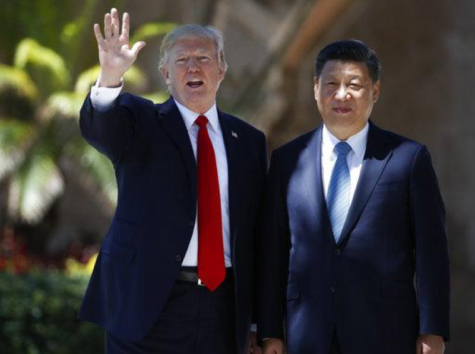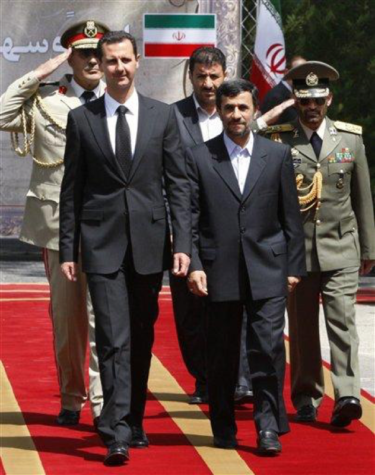Trump Launches Missile Attack on Syrian Airbase
April 24, 2017

Trump’s sudden change in platform culminated into a deadly attack.
In response to a chemical weapons attack that killed innocent Syrian civilians, the United States launched a missile on a government airbase in Syria on Thursday, April 6. This strike was the first military action the US government has taken against Syria in six years. This strike also represented a shift in President Trump’s policy, and questions have risen about the future of foreign relations between Syria and the U.S.
Under Trump’s authorization, dozens of cruise missiles were fired on the air base responsible for the chemical weapons attack. According to BBC, these missiles were aimed at aircraft and supplies such as aircraft shelters, storage areas, ammunition supply bunkers and air defense systems. The missiles were launched from warships in the Mediterranean Sea.
Both praise and criticism have been expressed in the media in regards to the attack.
Sean Spicer, US Press Secretary, called the missile strike on the airbase “very decisive, justified and proportional” and entirely justified for “humanitarian purposes” according to The Guardian.
However, ethical questions have risen following the attack. According to BBC, Trump did not have congressional approval to authorize the missiles, nor was this his strategy when he campaigned for presidency.
Trump’s original position was to not interfere with interstate Middle East conflicts. More specifically: the Syrian regime. According to the Guardian, his previous statements were that the US should play a minimal role in the ongoing Syrian war.
“Trump’s decision marked a dramatic shift in his position on whether the US should take military action against the Syrian President’s regime — which Trump opposed during his campaign for president,” said CNN.

His shift in policy occurred two days after the chemical weapons attack launched by the Syrian government, despite their denial. Innocent civilians, among them children, were killed. After seeing footage of the attack, Trump decided to change his mind about not interfering with Syrian issues.
According to CNN, Trump said the the chemical attack “crossed a lot of lines for me” and that he felt a “responsibility” to respond.
Trump’s airstrike could potentially affect relations with not only Syria but Russia as well.
Russian President Vladimir Putin described the US airstrikes on Syria as “an act of aggression against a sovereign state” that “dealt a serious blow to Russia-US relations,” said CNN.
This attack on April 6 could rupture foreign relations if Trump continues with his changed platform.
Trump said in a statement following the attack that “there can be no dispute that Syria used banned chemical weapons, violated its obligations under the Chemical Weapons Convention and ignored the urging of the U.N. Security Council.”
If conditions continue to deteriorate in Syria, it is possible that US intervention may continue to rise in the near future.

